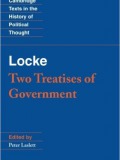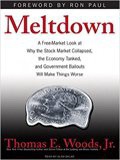Book

The Moral Case For Fossil Fuels
The Moral Case For Fossil Fuels provides need-to-know context for understanding issues related to energy and environmental concerns. This book is intellectually stimulating and enjoyably readable!
aboutLiberty Portal
Liberty Portal is your gateway for free markets and free thinking. We aggregate open-sourced content to promote and popularize important people and lessons within the liberty movement.
suggested
Naked Nutrition
Pure Creatine Monohydrate

- ONLY ONE INGREDIENT: 100% Pure Micronized Creatine Monohydrate. Certified Vegan, Non-GMO, Soy Free and Gluten Free.
- HIGHEST QUALITY: Naked Creatine is the highest grade creatine monohydrate supplement available.
- FAST DISSOLVING: Unlike other brands, Naked Creatine dissolves quickly in water or your juice of choice.
- RAPID ABSORPTION: Pure creatine monohydrate allows for fast absorption which enhances gains, strength, and increases training capacity.
- NO ADDITIVES: Made from pure monohydrate creatine with no artificial sweeteners, flavors or colors.
John Locke
Two Treatise of Government

This is a new revised version of Dr. Laslett's standard edition of Two Treatises. First published in 1960, and based on an analysis of the whole body of Locke's publications, writings, and papers. The Introduction and text have been revised to incorporate references to recent scholarship since the second edition and the bibliography has been updated.
Read more
Tom Woods
Melt Down

The excellently written Meltdown is the best introduction to Austrian Business Cycle theory and boom bust cycles from The Great Depression to the financial crash of 2008. Reading Tom Woods is essential.


